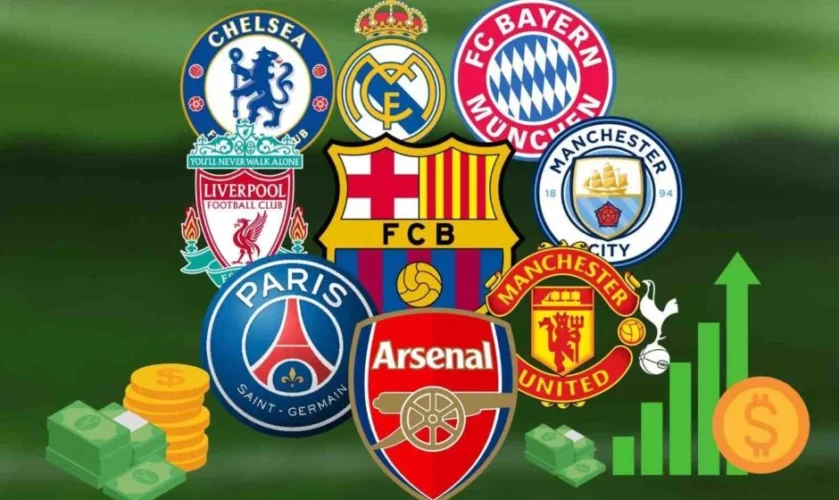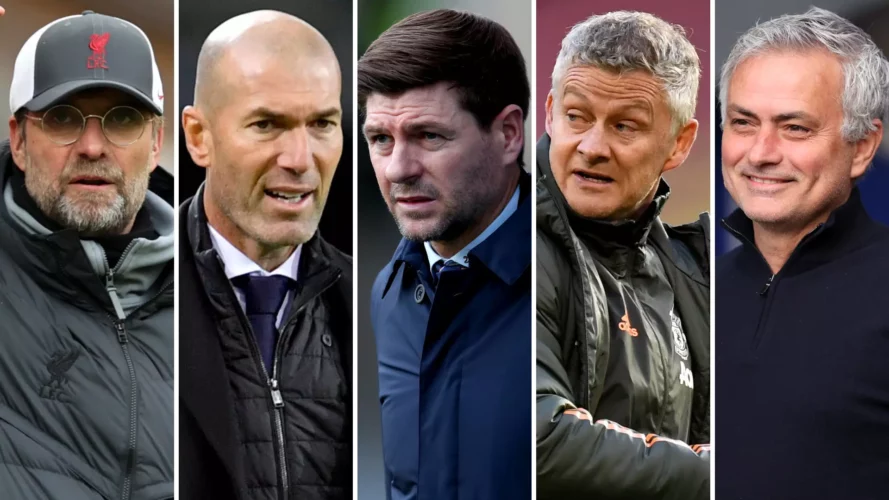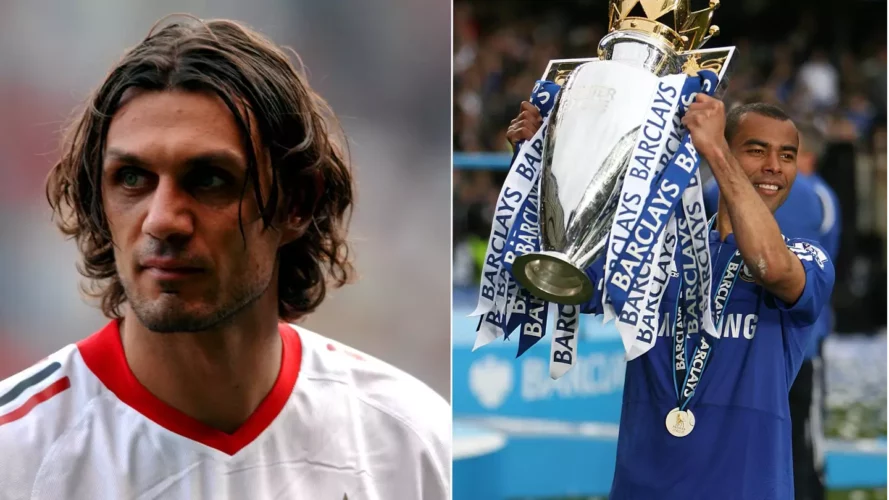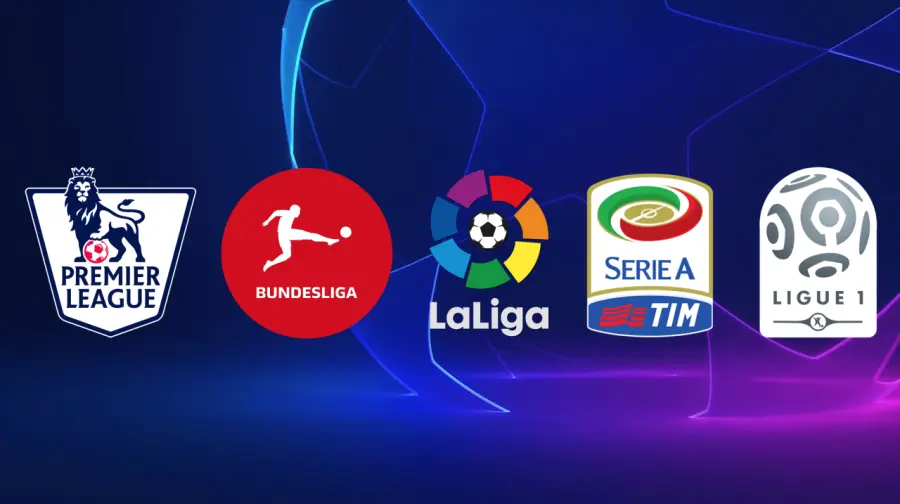On-field success is frequently mirrored by financial prowess. The world’s wealthiest football clubs for 2023 rankings provide an engrossing look into the financial affairs of these major sports organizations. A club’s standing reveals a story of calculated bets, astute business decisions, and the pursuit of continuous greatness, from transfer records to lucrative business agreements. Take a trip through the world’s wealthiest football clubs with us as we examine the rankings of the World’s Richest Football Clubs for 2023 and delve into the nuances that influence these esteemed organizations’ economic dynamics.
Tottenham Hotspur – £357m
In 2021, Tottenham Hotspur generated £357 million in annual revenue, experiencing a slight decrease from £392 million in 2020. Renowned for its global fanbase and featuring star players like Harry Kane and Heung Min-Son, the club heavily relies on broadcasting deals, constituting 57% of its revenue. Tottenham strategically invested in high-profile transfers, including Richarlison and Cristian Romero, with expenditures of £51 million and £44 million, respectively, showcasing a commitment to acquiring top talent in the competitive European football landscape.
Juventus – £382m
As the ninth richest football club globally, Juventus achieved a revenue of £382 million, marking an increase from £351 million in 2020. Despite Cristiano Ronaldo’s influential tenure, Juventus remains a football powerhouse, emphasizing its status in the transfer market. Noteworthy signings such as Dusan Vlahovic for nearly £72 million and Federico Chiesa for £37.4 million underscore the club’s financial strength. While broadcast deals contribute over half of Juventus’ revenue, matchday revenue constitutes a mere 2%, highlighting the club’s diverse income streams.
Chelsea – £434m
Chelsea stands as the eighth richest football club worldwide, boasting an annual revenue of £434 million, showcasing a 5% rise from 2020. With former owner Roman Abramovich’s transformative impact, Chelsea has become a global football force. Broadcasting deals form the majority, contributing 63% to the annual revenue, while commercial deals constitute 35%. Chelsea’s penchant for high-stakes transfers, exemplified by the £100 million acquisition of Romelu Lukaku, reflects the club’s financial might. However, the delicate balance with a substantial wage bill poses challenges without sustained on-field success.
Liverpool – £485m
Liverpool, England’s most successful club, generated £485 million in revenue in 2021, witnessing a marginal 1% dip from their triumphant 2020 Premier League season. With 55% of revenue sourced from broadcast deals, Liverpool’s commercial success is bolstered by football icons like Mohamed Salah, Alisson, and Virgil van Dijk. Notable transfers, including Diogo Jota, Ibrahima Konate, Luis Diaz, and Darwin Nunez, highlight Liverpool’s commitment to securing top talents, contributing to their status as the seventh richest football club globally.
Also Read:
LeBron vs Jordan: Who’s the Real G.O.A.T?
PSG (Paris Saint-Germain) – £490m
Since Qatar Sports Investments assumed ownership in 2012, PSG has emerged as one of the world’s wealthiest football clubs. In 2021, PSG recorded a total revenue of £490 million, reflecting a 3% increase from 2020. Unique among peers, commercial deals constitute the majority at 61%, followed by broadcast (36%) and matchday (3%) revenues. PSG’s reputation for blockbuster transfers is exemplified by record-breaking deals for Neymar and Kylian Mbappe. The addition of Lionel Messi further elevates the club’s financial standing, fueled by growth in social media, ticket sales, and merchandise with the star trio.
Manchester United – £491m
Manchester United, the fifth richest football club globally, reported an annual revenue of £491 million in 2021, experiencing a modest 4% decline from 2020. A football powerhouse, United’s commercial success, initiated by Sir Alex Ferguson, features stars like David Beckham and Cristiano Ronaldo. Significant transfers, including Antony, Lisandro Martinez, and Casemiro, illustrate the club’s financial prowess. Despite facing occasional setbacks, Manchester United remains a formidable financial and football entity.
FC Barcelona – £512m
FC Barcelona, historically a football giant, faced financial challenges, leading to an 18% revenue decline to £512 million in 2021. Messi’s departure and questionable transfers contributed to this downturn. Barcelona’s struggles were evident in signings like Ousmane Dembele and Philippe Coutinho, highlighting financial missteps. Despite financial constraints, the club made substantial investments in Raphinha, Jules Kounde, and Robert Lewandowski, reflecting Barcelona’s commitment to remaining competitive.
Bayern Munich – £538m
As Germany’s premier football club, Bayern Munich ranks as the third richest globally, with a 2021 revenue of £538 million, slightly down by 4% from 2020. Notably, Bayern excels in shrewd transfers, acquiring talents like Matthijs de Ligt, Sadio Mane, and Ryan Gravenberch at competitive prices. While broadcast deals contribute 42% to total revenue, Bayern’s savvy approach to the transfer market ensures sustained success on and off the pitch, epitomizing financial stability.
Real Madrid – £564m
Real Madrid, a global football icon, holds the second position among the richest clubs with a revenue of £564 million in 2021, reflecting a 7% decrease from 2020. Despite this, Real Madrid maintained a positive transfer balance, demonstrating financial prudence. The club’s success, both sporting and financial, persisted even after the departure of key players. Notable transfers, including Aurélien Tchouameni and Antonio Rüdiger, showcase Real Madrid’s strategic approach in the transfer market amid LaLiga dynamics.
The Bottom Line!
Within the global football competition, the 2023 rankings of the wealthiest clubs worldwide capture the economic vitality that drives the beautiful game. These financial positions highlight the clubs’ ability to draw elite players as well as the critical role that business endeavors play in determining their success. These rankings define the modern era of elite football clubs and are a testament to the enduring intersection of sport and commerce as the football landscape continues to change.




